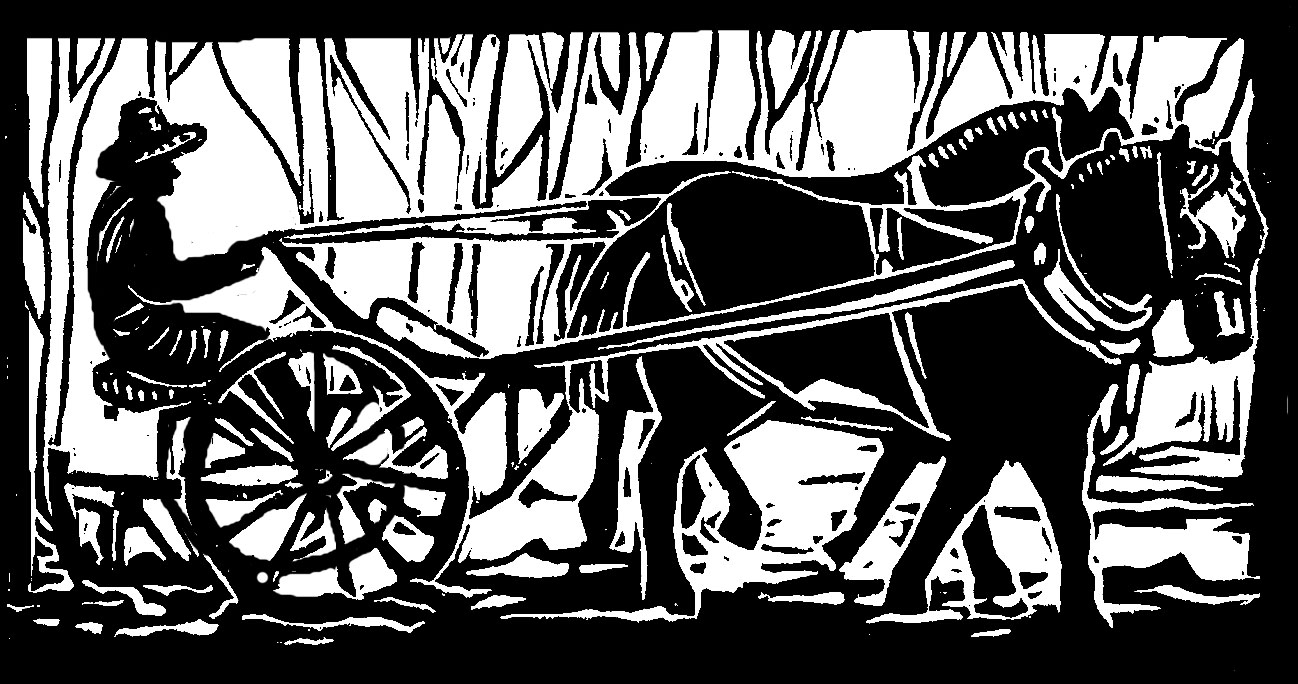Occasionally we vegetable farmers briefly slip away from the garden during the high season. We know this is a crazy thing to do, but we sure hate to miss a nephew's graduation or a mother's birthday. Even though we are gone less than 24 hours, we are pretty sure what we'll find when we get back: the weeds will have grown to gargantuan heights, the greenhouses will have been open for the 4 inches of torrential rain, our kitty will be desperate to get back outside, and our horses . . . well, our horses will be safe and happy in their pasture paradise, flush with grass and water. Right?
Wrong. Recently, after a visit to relatives, we returned to our farm at about four in the afternoon. There were many messages on our answering machine:
6:07 a.m. Hi there, sorry to call so early, this is your neighbor, right down the hill from you. We're pretty sure your horses are down here, they're heading out to the street. We wanted to let you know, we're keeping an eye on them, and . . . oh, they're walking out onto South Village Road right now. They're pretty big horses, and we're pretty sure they're yours. Hope you get this message soon.
“Oh, no, oh no!” My fellow farmer is ready to race out the door, panic and despair on his face. We both have instant, terrible visions of traffic accidents on the main road, people and horses hurt.
“Wait, wait!” I say, “There's five more messages! Anything could have happened! They could be anywhere!” Oh please, I am thinking, please, please, let everything be all right.
6:36 a.m. Hey guys, this is your neighbor down the hill, I believe you already have a message from my wife regarding your horses. I'm currently following them, just hanging out with them. I don't really know what to do or how to bring them home, but my cell phone number is …. Hopefully you'll get this and give me a call and I'll let you know where your beautiful horses are.
These two messages are from our brand-new nice neighbors, trying to help us out. We are slightly reassured. Someone is keeping an eye on our wandering horses, someone is hanging out with them, someone even thinks they are beautiful, as we do.
7:11 a.m. Hey guys, your horses are out and were down the road. Somebody's bringing them back up, I believe.
This is a voice we immediately recognize: our long-time nice neighbors, still helping us out after all these years. They let us make hay in their fields, and our horses graze their pastures, too. In fact, when our horses do get out, they usually go straight to this neighbors' field (or lawn, more often) and make themselves at home, a safe and friendly place, thank goodness (and thank the neighbors). And if someone is bringing the horses back up, that's got to be good.
7:16 a.m. Hey there, our neighbor just called saying that somebody stopped down to the village store thinking that your horses were out. I didn't know if you guys were home or what the deal was, but give me a shout.
This message is from one of our nice CSA members, who lives right down in the village, where the horses-are-out word is spreading fast, apparently. We are a little embarrassed, but mighty grateful. There are many eyes looking out for our horses.
And then we listen to the last message, again from our long-time neighbor:
7:23 a.m. So your horses are over here in our pasture when you get this message. Bye.
We sag, nearly weeping with relief. Our horses are safe and sound. There have been no traffic accidents, no one hurt. We start calling everyone back, thanking them for all their concern and effort on behalf of local farmers and farmhorses. We find out that yet another villager, one who also has draft horses, drove by, called his spouse, and then she drove up with halters. Our beautiful, naughty horses were amenable to the project of being led from the road back up to our nice neighbor's pasture, where they are happily ensconced once again.
Later that evening, we take a walk around our farm. We find the horses' tracks in the barnyard and stable, where they could have stayed happily in the shade and out of the bugs. We find their tracks into and out of all of our hayfields, which have not yet been cut for hay, and where they could have stayed happily eating lots of grass. Of course, they could have also stayed happily at the neighbors' barn and grass. It appears that the horses just decided to have a little walkabout, and visit the whole neighborhood.
We farmers are thankful indeed for the whole neighborhood, indeed for the whole community: a community which cares about loose horses, and which also has halters big enough to fit them; a community which makes it possible for us to take a tiny break from farming, and come back to farming; a community which we help sustain and which helps sustain us.
Originally published in the Monadnock Shopper News, August 2-8, 2017
